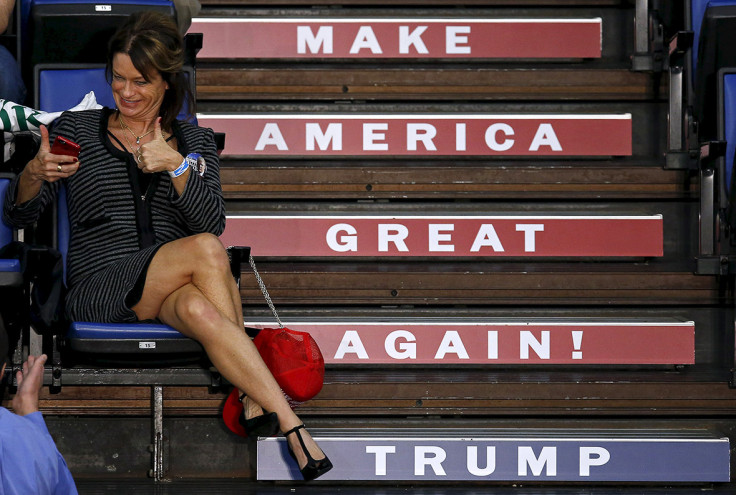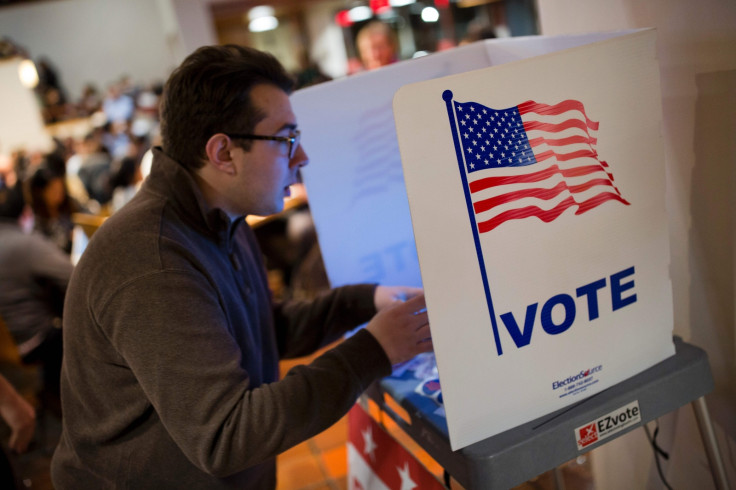America's quiet diversity offers bulwark to trumpet populist mania
A classic left-of-centre position interwoven with a typical right-wing conservative posture is more common in America than Europe.

The important thing one discovers when travelling across the USA is that behind the stereotypes and tabloid headlines, it is just like many other countries, holding a diverse group of people, full of contradictions and counterintuitive realities. And it is quite reassuring because this matrix of complexity acts as a bulwark against the wildfire of populist mania spreading in these uncertain times.
But for some odd reason, this multiplicity tends to disappoint much of the world, especially Europeans, who like to go to bed every night with simple derogatory generalisations that Americans are like this or Americans are like that — empty circles or small squares — when in reality for every cliché there are endless exceptions to the rule from the Blue Ridge mountains of Virginia to Montana plains.
On the same groundhog day that is the Trump campaign, banging out the usual racial slurs against unfortunate minorities such as ban Muslims from entering America, I came across a house in Minneapolis that had a sign planted proudly in their front garden — 'To Our Muslim Neighbors, a Blessed Ramadan'.
This is a result of a campaign by the Minnesota Council of Churches which launched an initiative to urge their community to participate in an interfaith outreach to extend best wishes to their neighbours during the holy month.
Or there was the Latino immigrant family in Pittsburgh with both parents teaching in the public school system while their three children attend the state-supported Pittsburgh Creative and Performing Arts School and who between them, play a dozen instruments.
The three multilingual teenagers were active supporters of Bernie Sanders in the Democratic primaries, but happy to now start drumming for Hillary Clinton to ensure no wall is built blocking the next generation of migrants from landing on these shores as they have done for hundreds of years.

That this enlightenment exists below the surface of the headlines should not be surprising when you consider such facts as eight of the world's top 10 universities are in the US, according to The Times Higher Education's reputation ranking. The 240-year-old country is home to almost half of the top 100 universities, 20 of which are located along this American heartland corridor with five alone in Pennsylvania.
Similarly, from the school of do not judge a book by its cover, standing on the porch of a country singer in Livingston, Montana, who like all his neighbours keeps guns in the house, I am told a story of the morning he shot a moose from his front door.
But as the conversation moves on to the upcoming election and gun control, he shares his views that he thinks it is crazy that the law allows people to buy army-style automatic assault weapons, and that he had hoped President Barack Obama would be successful in his fight with the National Rifle Association to introduce sensible gun control legislation before he leaves office in January.
A classic left of centre position interwoven with a typical right-wing conservative posture embedded within the same person is much more common in America than it is in Europe, and one can also see this apparent contradiction extrapolated at the State level — what are described as Swing states — that sometimes vote for Democratic Presidential candidates and sometimes vote for Republicans — and these states determine the outcome of elections.
Colorado is one such state, and for example in the liberal University of Colorado town of Boulder, the Sports Authority chain store was closing down and offering a 20% discount on what you would only describe as military-issue machine guns. Meanwhile, down the street and across the state with the passing of Amendment 64 in 2012, Colorado became the first state to open retail shops that sell soft recreational drugs that are illegal in most parts of the world.
The world rarely gets to hear about these rainbow voices that contravene established narratives, in essence because most international journalists covering the US are anchored in the coastal cities and do not often venture out into its heartland. It is easier to sit in your news bureau in New York, Washington DC or Los Angeles and absorb sweeping generalisations to support "what do you expect" clichés that have been peddled for years — Americans are naïve, Europeans are sophisticated!
Perhaps Brexit and the emergence of the far-right across Europe will soften the tone of this institutionalised ignorance. But in reality this misunderstanding flows in both directions across the Atlantic, with the American version also well anchored — Europeans are lazy with their 35-hour work weeks, Americans are industrious with only 2 weeks of holiday per year.
With the US, France, Germany and the Netherlands holding national elections over the coming 18 months, it will be crucial that all the diverse and counterintuitive voices of reason are respected, celebrated and supported by like-minded travellers on both sides of the big pond to ensure a bulwark is built to keep the demons of narrow-minded nationalism at bay.
Sean Evers is the founder and managing partner of Dubai, UAE-based strategic consultancy Gulf Intelligence. In the run-up to the 2016 US presidential election, Sean is authoring a series of articles for the International Business Times scrutinising America's socioeconomic challenges and the response of both the Trump and Clinton campaigns to economic demands of the electorate.
To read previous columns by Sean, on his journey across the US ahead of the 8 November, 2016 US Presidential election, click here.
© Copyright IBTimes 2025. All rights reserved.






















